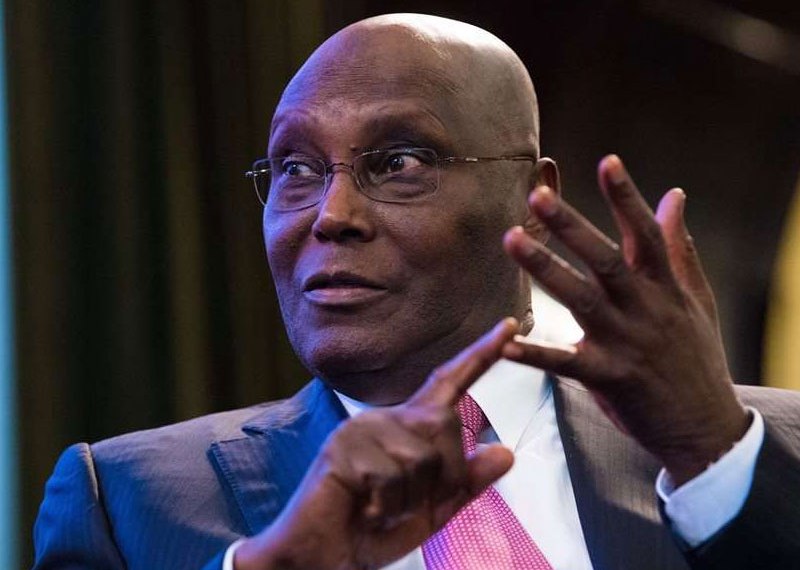News
Why Atiku Keeps Switching Parties: The Politics Behind Five Major Defections

Former Vice President Atiku Abubakar has once again stirred Nigeria’s political waters with his official resignation from the Peoples Democratic Party (PDP), the platform on which he previously contested multiple presidential elections. His exit, confirmed in a letter dated July 14, 2025, marks the latest in a string of strategic realignments that have defined his decades-long political career.
“I find it necessary to part ways due to the current trajectory the party has taken, which I believe diverges from the foundational principles we stood for,” Atiku wrote. “It is with a heavy heart that I resign, recognising the irreconcilable differences that have emerged.”
With this move, Atiku has now changed political parties five times, each shift reflecting deeper tensions, ideological rifts, and personal ambition within Nigeria’s evolving political landscape. As he eyes the 2027 general elections alongside a growing coalition of opposition leaders, a retrospective of his defections offers insight into the calculus behind one of Nigeria’s most persistent presidential contenders.

1. From PDP to Action Congress (2006): A Rift Over Succession
Atiku’s first major defection came in 2006 after a dramatic fallout with then-President Olusegun Obasanjo over succession disagreements. Though elected as Adamawa State governor in 1999 under the PDP, Atiku was selected as Obasanjo’s running mate and served as Vice President from 1999 to 2007.
By 2006, the relationship between the two soured, especially amid allegations that Obasanjo was pursuing an unconstitutional third term. Atiku defected to the Action Congress (AC) to pursue his presidential ambition but lost to PDP’s Umaru Musa Yar’Adua in the 2007 elections.
2. Back to PDP (2009): Reuniting After a Bitter Split
After a strained relationship with AC leaders—particularly former Lagos Governor Bola Tinubu—Atiku returned to the PDP in 2009. His comeback was driven by an intent to contest the 2011 presidential ticket, which he ultimately lost to then-incumbent President Goodluck Jonathan. His return signaled both political pragmatism and a desire to reintegrate into Nigeria’s largest opposition bloc at the time.
3. PDP to APC (2014): Frustration With Internal Democracy
Disenchanted with the internal workings of the PDP, Atiku once again jumped ship in 2014—this time to the emerging All Progressives Congress (APC), formed as a merger of several opposition parties.
Recommended News:
- BREAKING: Atiku Abubakar Quits PDP, Cites Party Drift From Founding Ideals
- Constitution Not Nigeria’s Problem, Leadership Is — Obasanjo
- “I Refused Their Advances, So They Denied Me Roles” — Nollywood Veteran Moji Afolayan Speaks Out
Citing a lack of internal democracy and rising disillusionment within the PDP, he joined forces with APC leaders to unseat the ruling party in 2015. Though he lost the APC’s presidential primary to Muhammadu Buhari, the party went on to secure a historic victory in the general elections.
4. APC to PDP (2017): Discontent With APC Governance
In 2017, Atiku returned to the PDP, accusing the APC-led federal government of failing to fulfill its campaign promises and marginalizing founding stakeholders. His re-entry into the PDP set the stage for his presidential bid in the 2019 elections. He won the party’s nomination but was again defeated by President Buhari.
5. PDP to Emerging Coalition (2025): A Bid for Realignment Ahead of 2027
Atiku’s most recent resignation from the PDP follows months of internal party divisions, unresolved zoning disputes, and discontent following the party’s poor showing in the 2023 elections.
Though he has not officially announced his new political home, sources close to the opposition camp confirm that Atiku, alongside Labour Party’s 2023 presidential candidate Peter Obi, former Senate President David Mark, and other prominent leaders, have aligned with the African Democratic Congress (ADC) as the new political vehicle to challenge the APC in 2027.
What Next for Atiku?
Atiku Abubakar’s recurring party shifts underscore a political strategy rooted in adaptability, coalition-building, and a relentless quest for national leadership. While critics accuse him of opportunism, his supporters view him as a statesman unafraid to challenge stagnation within political systems.
As Nigeria moves toward another pivotal election in 2027, Atiku remains a central figure in opposition politics—one whose every move will likely shape the broader contest for power in Africa’s most populous nation.
























